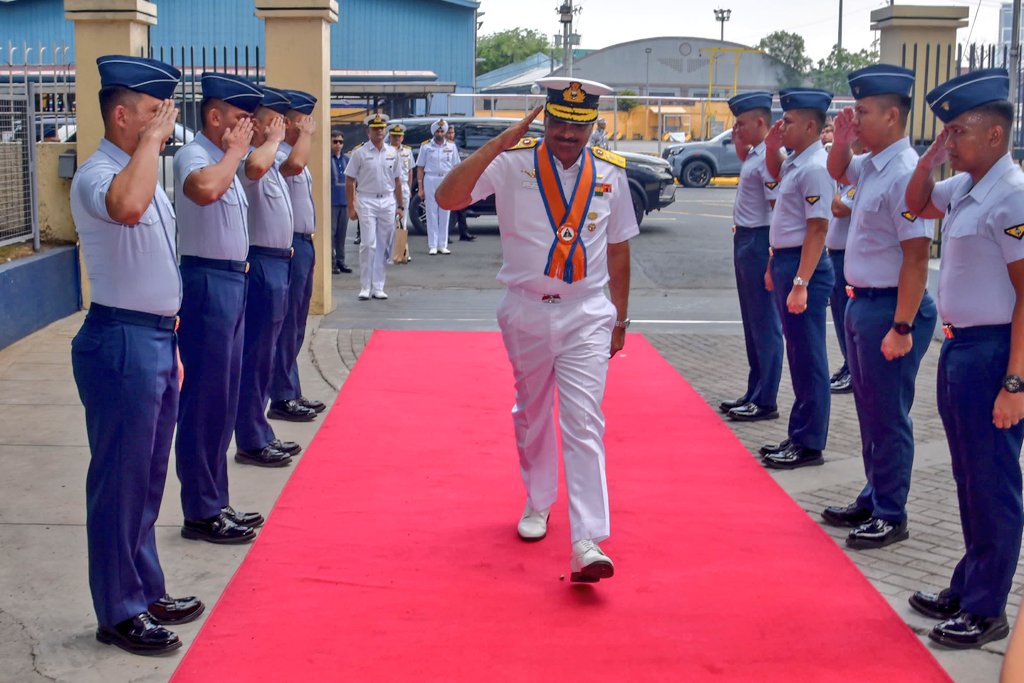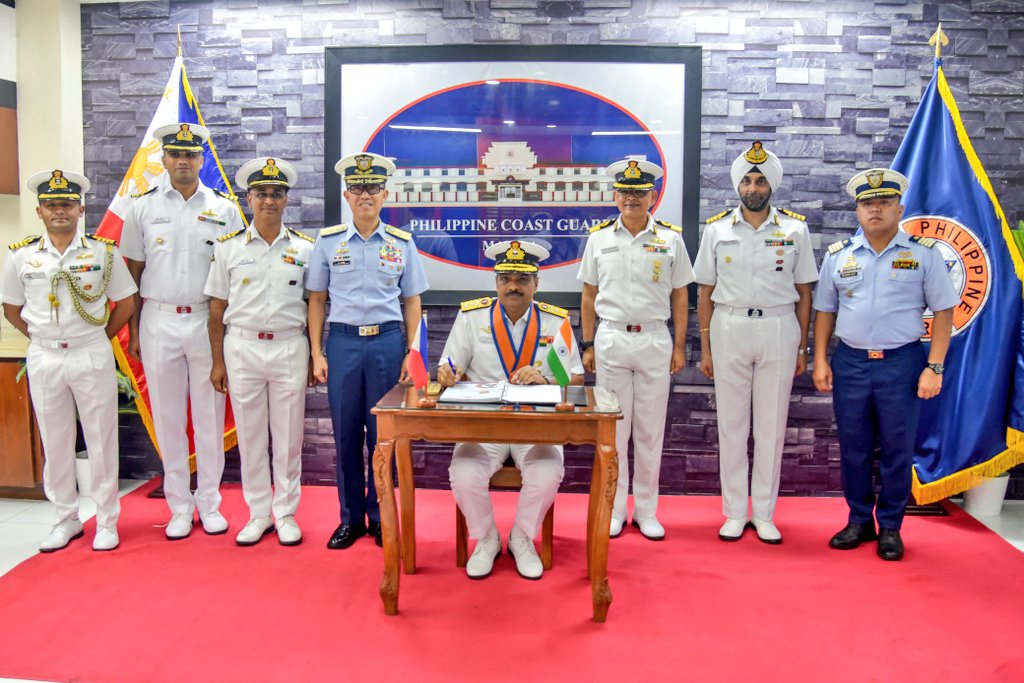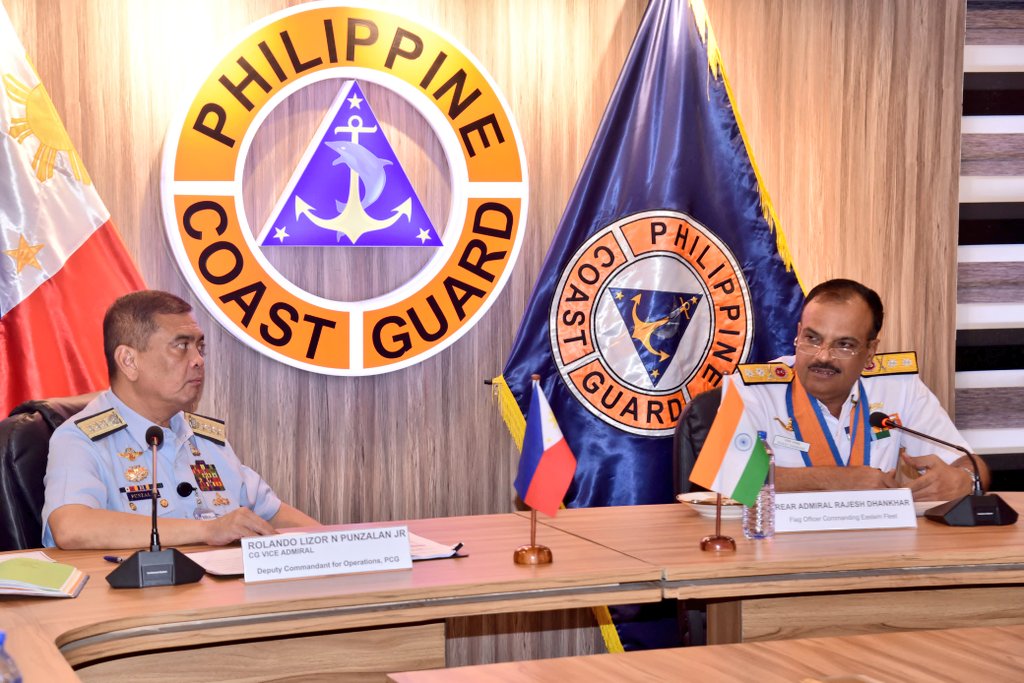The discussions underscored the strategic importance of the West Philippine Sea, a region marked by complex geopolitical tensions and maritime security challenges.
Both naval leaders emphasized the need for a collaborative approach to ensure peace, stability, and security in the region. They deliberated on various aspects of the security environment, highlighting the shared concerns over maritime piracy, territorial disputes, and the increasing presence of non-state actors in the waters.
Rear Admiral Dhankhar and Vice Admiral Punzalan reviewed the existing defence cooperation mechanisms between their nations, acknowledging the progress made through joint exercises, training programs, and capacity-building initiatives.
They expressed satisfaction with the ongoing maritime security cooperation and exchanged views on potential areas for further enhancement. The interaction aimed to deepen the Bridges of Friendship between the two nations, fostering a stronger and more resilient partnership in the face of common maritime challenges.
One of the key outcomes of the meeting was the agreement to enhance joint naval exercises and training programs. Both sides recognized the value of these engagements in improving interoperability and operational coordination.

By conducting more frequent and complex exercises, the Indian Navy and the Philippine Coast Guard aim to strengthen their collective ability to respond to various maritime threats and contingencies.
The leaders also discussed the possibility of expanding the scope of defence technology and information sharing.
With advancements in naval technology playing a crucial role in modern maritime operations, both countries acknowledged the potential benefits of collaborating in areas such as surveillance, reconnaissance, and maritime domain awareness. Enhanced information sharing would enable more effective monitoring of the vast maritime expanse and facilitate timely responses to emerging security threats.
Rear Admiral Dhankhar highlighted India’s commitment to supporting the capacity-building efforts of the Philippine Coast Guard.
He noted that India has a wealth of experience and expertise in various aspects of maritime security, which could be shared to help enhance the operational capabilities of the Philippine forces. This support could take the form of specialized training programs, technical assistance, and the provision of advanced maritime equipment.
Vice Admiral Punzalan, in turn, expressed appreciation for India’s steadfast support and cooperation. He reiterated the Philippine Coast Guard’s commitment to working closely with their Indian counterparts to address mutual security concerns and uphold the rule of law in the maritime domain.
He emphasized the importance of solidarity and cooperation among like-minded nations in maintaining regional stability and security.
The meeting also touched upon broader strategic issues, including the need for a rules-based international order in the Indo-Pacific region.
Both leaders affirmed their commitment to upholding international maritime laws and norms, particularly the United Nations Convention on the Law of the Sea (UNCLOS). They stressed the importance of freedom of navigation and overflight, as well as the peaceful resolution of disputes in accordance with international law.
The interaction between Rear Admiral Dhankhar and Vice Admiral Punzalan is seen as a significant step forward in reinforcing the defence ties between India and the Philippines.

It reflects a mutual recognition of the strategic convergence between the two nations and their shared vision for a secure and stable maritime environment.
As the security landscape in the West Philippine Sea continues to evolve, the strengthened defence cooperation between India and the Philippines will play a crucial role in safeguarding their national interests and promoting regional peace and stability.
The Bridges of Friendship built through such engagements are expected to yield long-term benefits, fostering a robust and resilient partnership capable of addressing the dynamic challenges of the maritime domain.








